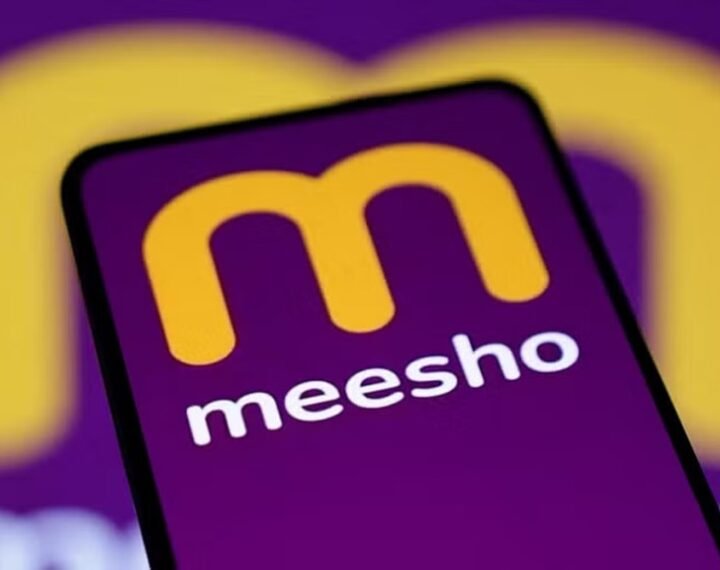
Small-town bet delivers the goods for Meesho
Meesho, an e-commerce startup, has emerged as India’s third-largest online retail platform by GMV, positioning itself for a potential public market debut.
Backed by a sharp focus on small towns and low-cost sellers, e-commerce startup Meesho has emerged as the country’s third-largest online retail platform by gross merchandise value (GMV), positioning itself for a potential public market debut.
According to a recent report by brokerage firm CLSA, Meesho has reached a GMV run rate of $6.2 billion for FY25. The report projects Meesho’s market share will climb from 8.5% to 10% over the next six years, even as larger rivals Amazon and Flipkart see marginal declines.
Founded in 2015, Meesho carved a unique path through India’s crowded e-commerce landscape. Instead of targeting premium urban customers, it targeted price-sensitive consumers in Tier 2, Tier 3, and rural regions. This differentiated approach has built strong traction among first-time Internet shoppers and small-scale sellers. Today, Meesho boasts over 187 million annual transacting users and has achieved profitability—an uncommon milestone for horizontal e-commerce players.
Meesho began its journey as Fashnear, a hyperlocal fashion discovery app. However, it quickly pivoted upon recognising the dominance of unbranded goods in e-commerce. It then launched a platform enabling informal resellers—often homemakers and small entrepreneurs—to sell products via WhatsApp and Facebook, bypassing the need for inventory or capital investment.
“What struck us was their hands-on insight that 90% of fashion commerce in India involves unbranded goods, a massive reality that Amazon and Flipkart were ignoring,” said Arjun Malhotra, general partner at Good Capital, an early investor. “Indian commerce is fundamentally relational, not transactional,” he said.
In 2021, Meesho eliminated commission fees, making it the lowest-cost platform for online sellers. This seller-first model attracted over 400,000 transacting sellers annually. On the buyer side, the company built a lightweight app with regional language support, optimised for low-end smartphones and patchy mobile data—key to driving adoption in rural India.
“Over a third of Meesho’s user base comprises first-time online shoppers,” noted Lavanya Ashok, Partner at Trifecta Capital, which invested in the company through its growth equity fund. “Their tech-led approach—AI-driven cataloguing, personalised interfaces, and vernacular support—has been crucial to onboarding new buyers and retaining trust among sellers.”
To support its low-cost operations, Meesho has also developed its own logistics network. Its delivery arm, Valmo collaborates with 6,000 regional partners to deliver across more than 15,000 pin codes. Valmo now manages over half of Meesho’s deliveries.
This model—enabling rather than replacing existing networks—has allowed Meesho to keep customer acquisition costs significantly lower than its peers. “We saw other startups burn through millions trying to build marketplaces from scratch,” said Malhotra. “Meesho’s model of enhancing existing behaviour was not only more capital-efficient but more culturally aligned,” he added.
The company’s disciplined execution is beginning to reflect in its financials, too. In FY24, Meesho generated ₹197 crore in free cash flow and cut adjusted losses by 97% year-on-year. Annual order volume crossed 1.3 billion, with home & kitchen and beauty & personal care emerging as key growth drivers.
Despite this scale, Meesho’s growth potential remains vast. Only 5% of India’s 63 million micro, small and medium enterprises, or MSMEs, are fully digitised, pointing to a large untapped market. “Maintaining trust at scale is hard,” said Malhotra, “but Meesho’s engagement-led model creates a strong moat.”
The broader market backdrop is also favourable. A January 2024 report by Wazir Advisors projects India’s value retail market—excluding food and groceries—will grow from $111 billion in FY23 to $170 billion by FY26. Meanwhile, Bain & Company analysts noted early this year that hyper-value commerce has expanded from 5% of India’s e-retail GMV in 2021 to over 12% in 2024.
With profitability, scale, and a differentiated model, Meesho is poised to become a defining force in India’s next wave of digital commerce.
Author Credits- Ayanti Bera
FINANCIAL EXPRESS









